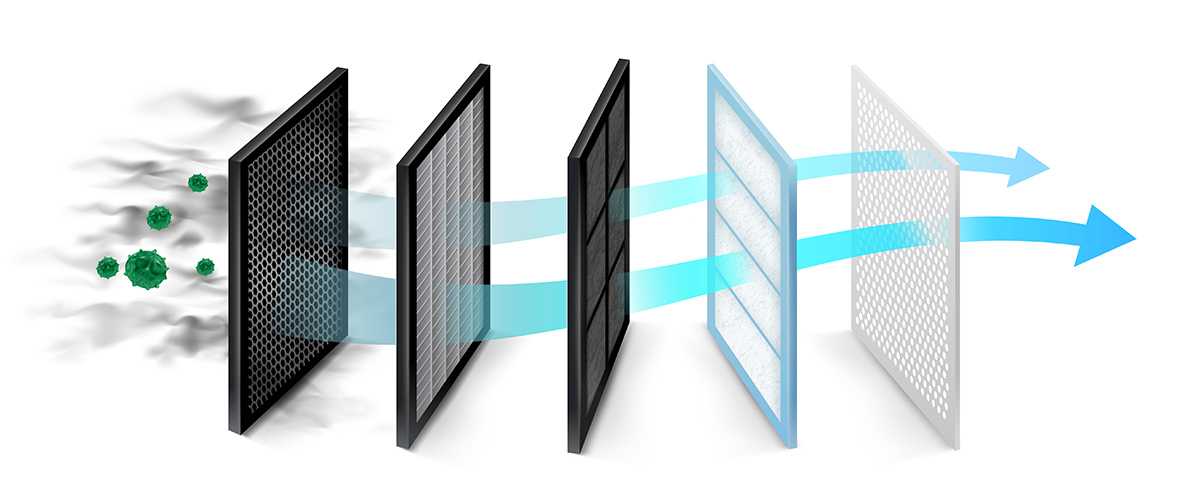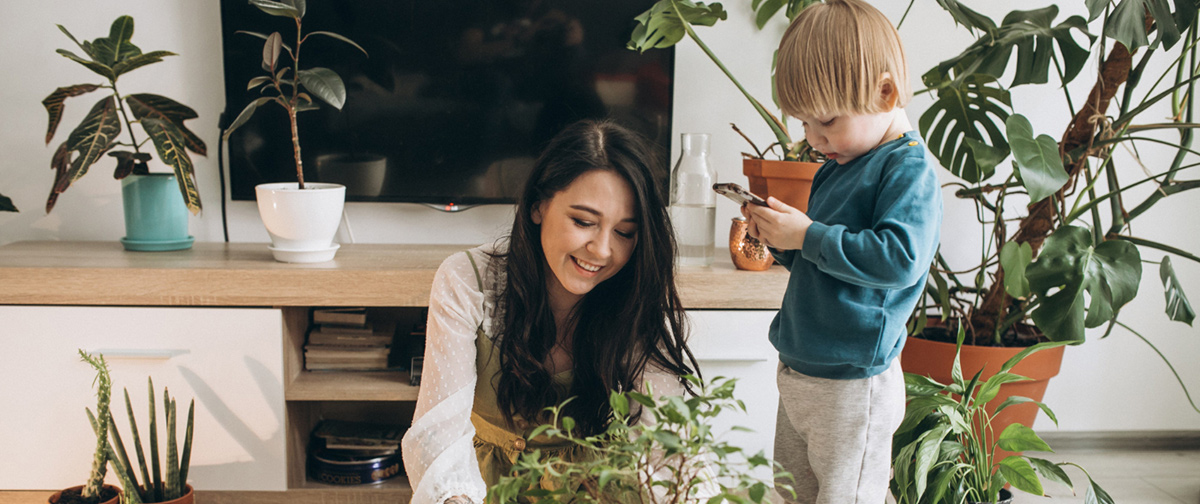We know you care about the health and safety of your family. Did you know that, among other factors, the condition of your HVAC system directly also affects the indoor air quality?
HVAC systems are responsible for circulating heated or cooled air, depending on the weather. While they do a remarkable job of maintaining the climate inside the house, they can also be the cause of different health-related issues due to the circulation of poor-quality air.
The Occupational Safety & Health Administration (OSHA) suggests that inadequate HVAC maintenance can be a major factor in decreasing indoor air quality. OSHA warns that poor quality indoor air can lead to many of the following problems like Headaches, Concentration problems, Fatigue, Skin rashes, Eye, nose, throat, and lung irritation.
- Why is Indoor Air Quality Important?
- Regular Inspection of Your HVAC System
- Air Duct Cleaning
- Getting Rid of Stale Air
- Check Carbon Monoxide Levels
- Houseplants
- Clean Your HVAC Air Filters
- Clean Up the Vents
- Reduce Humidity
- Avoid Smoking Indoors
- Use Non-Toxic Products
- Groom Your Pets
- Keep it Clean!
Why is Indoor Air Quality Important?
Air is life. The quality of the air we breathe has direct implications for the quality of our lives.
According to the CPSC (Consumer Product Safety Commission): “In the last several years, a growing body of scientific evidence has indicated that the air within homes and other buildings can be more seriously polluted than the outdoor air in even the largest and most industrialized cities.”
We have formulated a list of measures for you to ensure that you breathe clean air around the clock at your Denver home.

Regular Inspection of Your HVAC System
It is vital to have your home or office HVAC system checked by certified professionals at least once each year. Schedule an appointment with a trained professional who can conduct an air quality test inside your home or office.
The air quality test will highlight airborne problems that allow an HVAC expert to come up with a viable solution. JDs Plumbing Heating & Air Conditioning has all the required equipment to conduct an accurate indoor air quality test which can help us in determining the best course of action.
Air Duct Cleaning
Clogged ducts are the number one cause of spreading polluted air throughout your home. Over time, these ducts become clogged if you have kids or pets at home. Cleaning up the ducts is one of the regular steps an HVAC technician will take as a part of their maintenance visit. The cleaner the ducts, the more efficient the HVAC system will give you clean, unobstructed, and temperature-maintained air.
Getting Rid of Stale Air
Another solution is to install a heat recovery ventilator (HRV) or energy-recovery ventilator (ERV), which can help improve indoor air quality. These systems will help replace stale indoor air with fresh air from outside.
Check Carbon Monoxide Levels
Certified HVAC experts in Denver are trained to check the possible level of poisonous carbon monoxide gas inside your home. It is produced inside home heating systems when the incoming fuel isn’t burnt properly. It can flow through the ducts and be inhaled. Carbon monoxide has potentially life-threatening and brain-damaging effects. Regular servicing of your home HVAC system will help avoid the emission of this dangerous gas.
You can also install home carbon monoxide detectors at home as an added security measure.

Houseplants
Nature to the rescue!
Indoor houseplants are great natural air purifiers. They clean the air naturally and emit oxygen into the air, boosting the air quality. Houseplants can include aloe plants, English ivy, rubber tree, snake plant, bamboo palm, red-edged dracaena, etc., which are great at eliminating toxins from the indoor air.
Clean Your HVAC Air Filters
Air filters should be changed every month as the HVAC system is the first line of defense against poor quality air. It cannot provide a good defense with dirty filters. A clean filter will clear the air of various airborne particles and microbes as the blowers re-circulate the air throughout your home. You can choose quality pleated fabric filters rated to trap airborne particles down to a size of 3 microns for good quality indoor air.
Clean Up the Vents
In addition to changing the air filters, it’s important to regularly clean up the vents inside the HVAC system. They will look like a grate and might be found coated with debris, culprits of distributing polluted air through your home. Here we again suggest additionally installing heat recovery ventilators which are becoming more and more popular.
Reduce Humidity
You can reduce the humidity and mold, both of which qualify as poor contributors to air quality, by installing dehumidifiers and air purifiers. The Environmental Protection Agency recommends that indoor humidity levels should be between 30 and 60 percent. High humidity creates a breeding ground for toxic mold and bacteria inside the home, making breathing unpleasant and difficult.
Avoid Smoking Indoors
We all know that smoking indoors is highly dangerous. Not only does it make the air unpleasant, but it also contaminates the breathing air for children and other members of your family as smoke remains trapped inside. Plus, the exhaled smoke contains more than 4,000 different chemicals, none of which are good for health. There is no way for an HVAC system to filter all that trapped air inside. Hence, if you or someone in your family is a regular smoker, it is wise not to smoke indoors.

Use Non-Toxic Products
Make eco-friendly choices by selecting non-toxic paints, sprays, and home cleaning products. Aerosol insect killers should be avoided entirely as they have potentially poisonous effects on humans as well. Choose paints without VOCs (Volatile Organic Compounds), so your air does not cause problems like headaches, dizziness, and even allergies.
Groom Your Pets
Pets bring in a lot of dirt, and their shed fur easily becomes airborne. This decreases the breathability of air and clogs your HVAC filters and vents, decreasing their efficiency. Wash and groom your pets often and get rid of any extra fur or hair which might end up clogging the vents or getting inhaled.
Keep it Clean!
Cleanliness is healthy, and this includes clean air. If you want to stay healthy, keep your HVAC clean and maintain healthy, hygienic habits at home. Regular cleaning of furniture, carpets, and fans will promote better indoor air quality of air. Use a vacuum cleaner to suck in the dust, so it doesn’t spread. Wash curtains, carpets, bedsheets, and pillowcases often.
Try leaving the outdoor-wear shoes outside the house and bring them in after cleaning them up.
All these are small measures in themselves, but together they can make a huge impact on the overall indoor air quality of your home.





